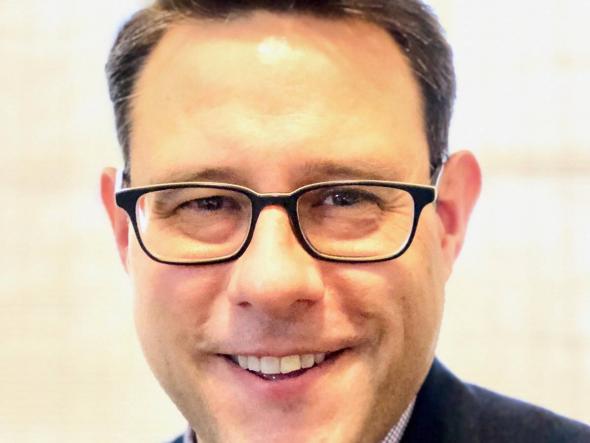I am exceptionally blessed. I have been at de Toledo High School (in West Hills, California, a 9-12 pluralistic high school) since its inception in 2002. Starting as the first coach hired at the school (and then becoming a teacher, dean and dean of students), I have been able to be a small part in the creation and growth of our school and culture. When our founding head, Dr. Bruce Powell, “retired” (never use that phrase with him!), I was honored to be selected as the second head of school.
While I tried to do my due diligence as to the demands of headship, what I quickly learned was that being a head of school is not an easy job. Most of us started our journey to headship on the education side. However, as heads, we are expected to be masters in education, finance, budgeting, marketing, the emotional development of students (and faculty), communications, development, facilities, learning differences, risk management, hiring, firing, tuition assistance, recruitment, governance and public speaking. All of that while maintaining a work-life balance and a sense of personal satisfaction and happiness.
Over the last few weeks, I have been thinking deeply about this subject and came up with a list of what makes this exceedingly challenging job (hopefully) sustainable over the long haul. Many of these lessons I learned the hard way, through missteps and moving “too quickly.” Within the first two weeks of my headship, my community was confronted with horrific wildfires that displaced a large percentage of our school families and many other local Jewish organizations. We were one of the few to remain open and had to quickly pivot (before that was a thing) to help our families and sister organizations deal with the impacts of the fire by opening our campus and assisting our students to deal with the trauma.
In addition, in my first year, our community had to deal with a car accident that took the life of a 50-year-old board member. All of a sudden, our school had to surround this family with love and support, and I had to take on a pastoral role (I am a trained lawyer, not a rabbi or social worker).
Through these (and, unfortunately, a number of other crises and tragedies), I had to take time and stock of my actions, my words and my intentions to learn how to be a better head of school, and how not to let these unfortunate incidents drain the joy from the job. I also listened and learned from my board’s head support and evaluation committee and trusted colleagues in and out of dTHS to improve my approach and help me handle the pressures and demands without wilting.
This list covers most of my important needs and values; it is surely not exhaustive, nor is it presented in any particular order.
- Believe in the mission and culture of your school, or leave. While a long contract and compensation are important, if you don’t believe deeply in the mission, vision, and culture of your school, it is not the right fit. For the sake of the school and students, you need to find a place where you do believe in these important aspects of the school.
- Trust your team. And, as a corollary:
- Don’t micromanage. You hire professionals to do their jobs, trust them to do them (or find someone who can).
- Surround yourself with leaders you can rely upon and delegate to.
- Delegate, delegate, delegate. You can’t (and shouldn’t) do everything.
- Don’t go at it alone. Communicate, create a support system, and NEVER set up a dynamic of “us vs. them” or “you against the world.”
- Don’t be reactive. We lead educational institutions and we have to give space for everyone, students and faculty alike, to make mistakes and be able to grow from them.
- Take a breath before making major changes. Build your political capital (if you are new to a school), and sometimes let changes happen through an intentional, evolutionary process.
- Know all the people in your organization (from the board to maintenance and security) and treat them and the culture of the institution with dignity and respect. Learn everyone’s name and use it when speaking to them. A culture of kindness starts at the top and filters down. Model and teach the values of dignity and kindness in all your interactions.
- Keep your finger on the pulse of morale. Build a team throughout the organization who will be honest and truthful with you. Morale can be destroyed in a moment and takes years to rebuild. The more you know, the more you can try to avoid these issues.
- Create a relationship with your executive committee and especially your board president where you can have open, frank, and vulnerable conversations. If it ever feels like it is you “against” the president or board, it is not the right situation to be in.
- Find a coach as well as other confidants with whom you can talk honestly. You need an outlet and the ability to unload some of the burdens on understanding (but confidential) ears.
- Trust in yourself, but never believe in your good press.
- Always express gratitude. It is important for you as well as the recipient. If you can build a culture of gratitude, everyone will be uplifted and supported.
- Embrace the philosophy of servant leadership and take care of others first.
- Family comes first. If you are not happy at home, you will not be able to be happy and supportive at school. Our families, significant others, partners, or close friends are our supporters. Nurture those relationships.
- Ensure a good contract in terms of length and salary. While few people are willing to talk about it, if you have a long contract with reasonable compensation, it allows you the flexibility to take care of yourself and your family, while dealing with the stresses and long hours of the job.
- The grass is not greener. While the parable of planting a seed for future generations is wonderful and true, it is also nice to stick around long enough to start to see the seeds of your labor bear fruit.




